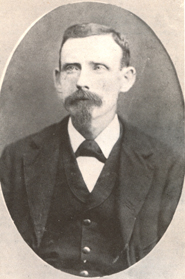
He needlessly notes that the boat was deep in the water. And I note one bar of soap for five months. After obtaining his customs clearance for what was listed as “a voyage of pleasure,” Bernard Gilboy called, “All aboard for Australia,” and shoved off. He made very good time his first week, covering 510 miles, particularly considering that he stopped to sleep, either heaving to or letting the small schooner swing to the sea anchor drogue. However progress came to a stop when he reached 9º North, and he made only 237 miles in the next 29 days. Finally at 5º North, he started moving again.
In describing conditions Gilboy often uses charming expressions with which I was not familiar, such as “baffling wind” and “mizzling rain.” Ninety days out of San Francisco he was near Tahiti. Although San Francisco is five hundred miles north of San Diego, in CHIDIOCK TICHBORNE I was within six miles of Tahiti in 39 sailing days. I was, of course, not carrying provisions for five months. Disaster struck with the passing of a single wave which capsized the PACIFIC south of Fiji on December 12, his 116th at sea, only a few hundred miles southeast of where another single wave flipped CHIDIOCK TICHBORNE ninety-eight years later. Gilboy lost a mast, the rudder, his sextant and compass, and almost all of his provisions.
Steering with an oar until he made a seamanlike substitute rudder and with the jury rig seen in the lead photograph, he struggled on, starving, until on January 29, he was seen and picked up, boat and all, by a passing schooner. At the time he was two hundred miles off the Australian Queensland coast.
Gilboy’s almost successful attempt to make the first solo voyage across the Pacific Ocean surely ranks among the greatest almost unknown voyages. When late in life, Alfred Johnson was asked why he had sailed across the Atlantic alone, he replied, “I made that trip because I was a damned fool, just as they said I was.”
Download: Bernard Gilboy's adventure book "Voyage of pleasure"
In the March 24, 1883, issue of the SAN FRANCISCO DAILY ALTA CALIFORNIA newspaper appeared: “The dory “Pacific” is reported as arrived safely at Australia. Her only occupant gives a thrilling account of his perilous trip. He arrived, as above, and the fools are not all dead yet.” To which I offer the very last words in STORM PASSAGE: The fool smiles and sails on.
